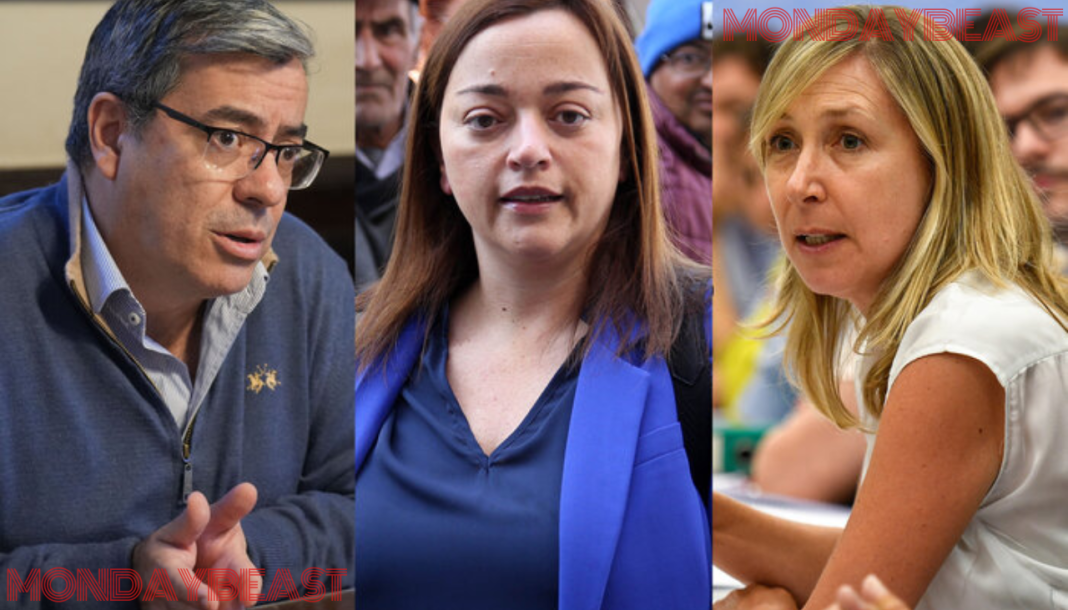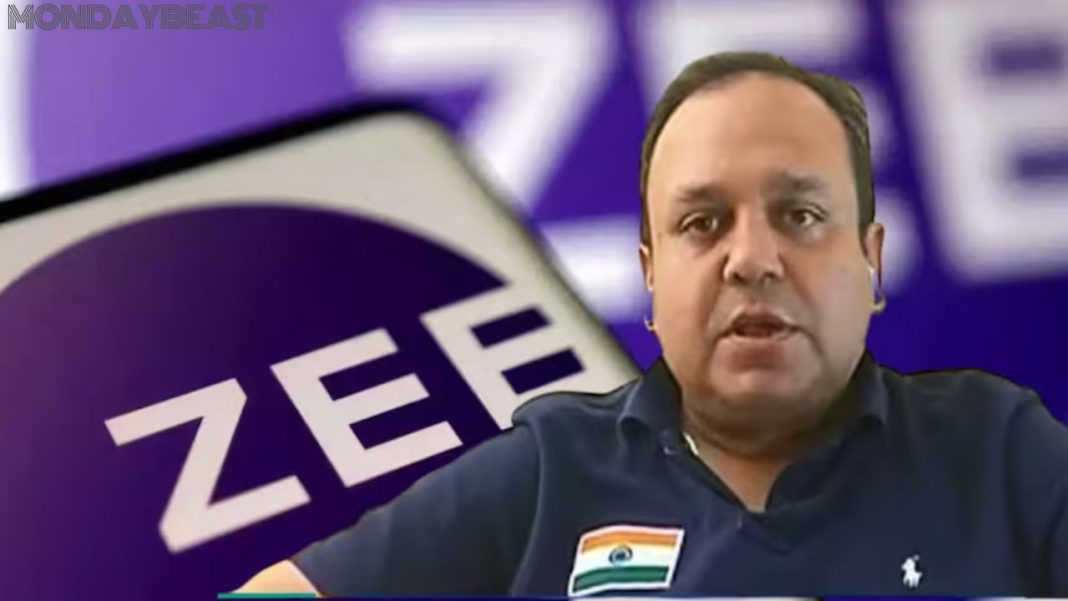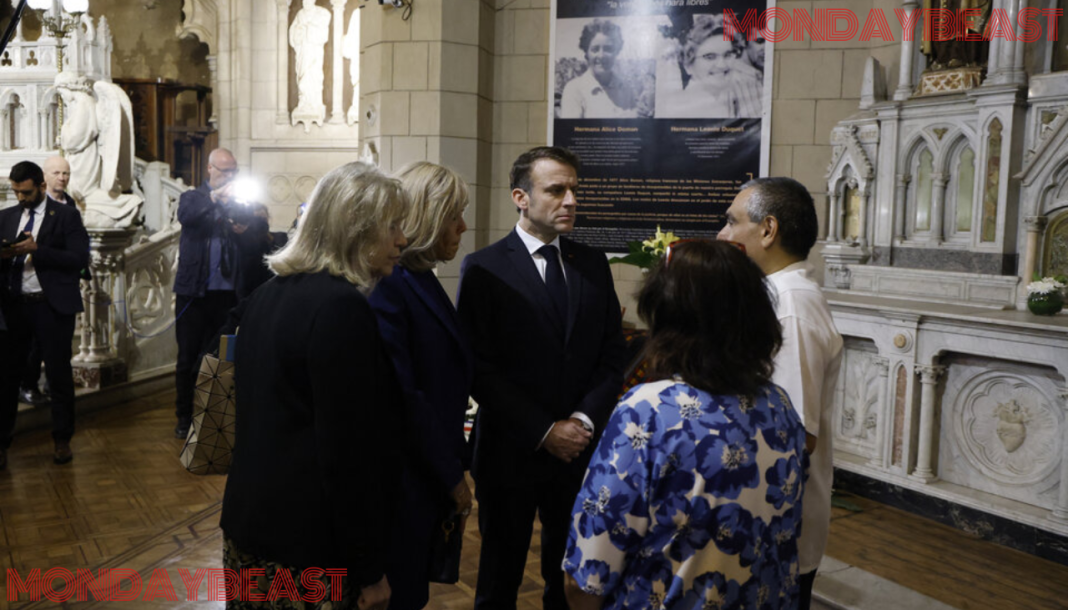The air feels heavy. A tension hangs over Argentina. Political violence looms in the shadows. Recent events raise alarms. Ominous signs present themselves. One such sign? The emergence of a group flaunting fascist imagery.
This group, claiming to be the ‘armed wing’ of Javier Milei, stirs distress among many. Germán Martínez, a prominent figure in the opposition, does not mince words. He labels them as fascists. His powerful message on social media echoes across the political landscape. “We cannot undermine this violence,” he insists.
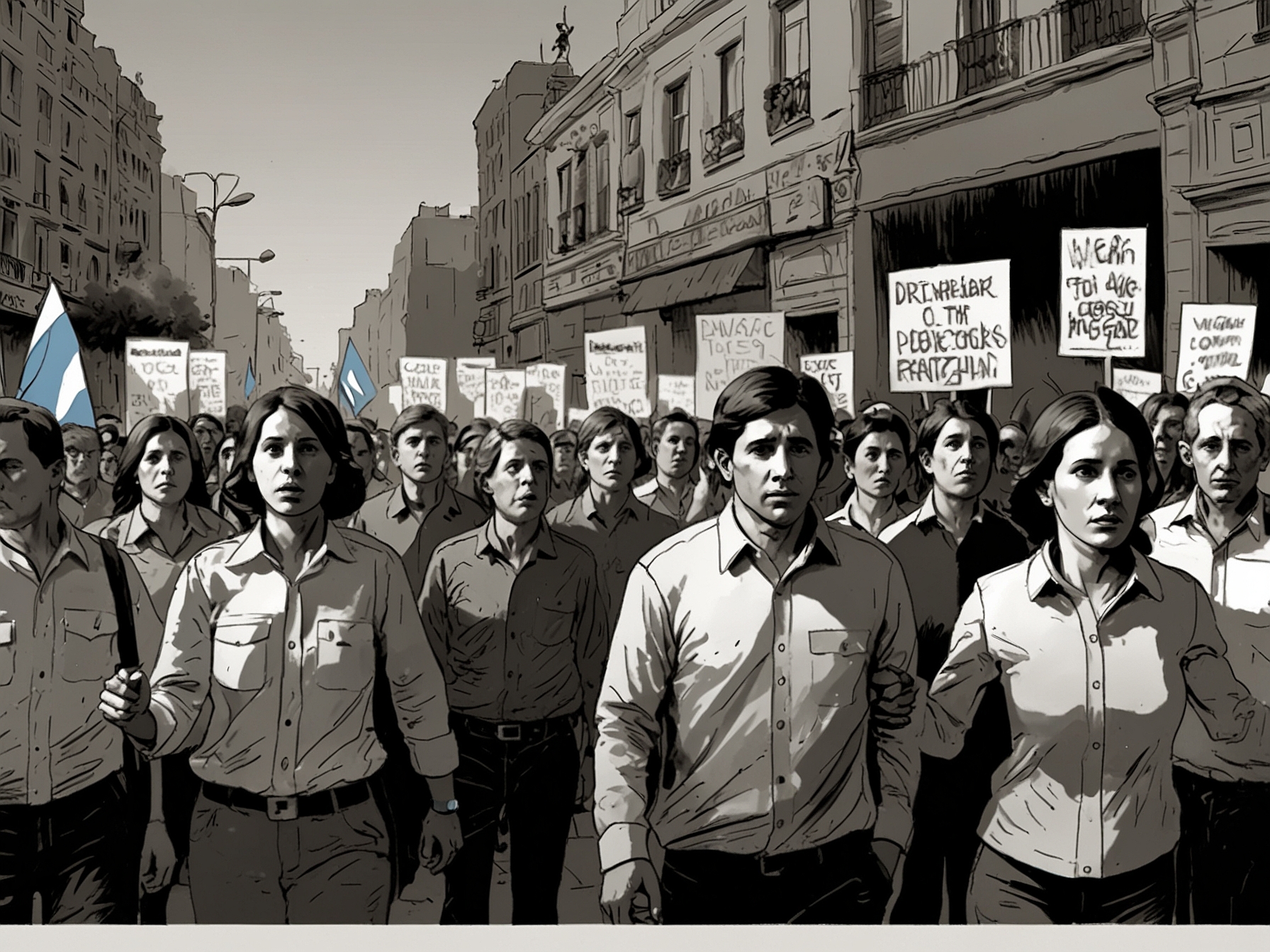
Cecilia Moreau, another leading voice, shares similar sentiments. She calls for an end to trivializing such acts. The imagery and rhetoric surrounding their launch are deeply concerning. It isn’t just political posturing; it resonates with darker histories.
But why does it matter? What are the implications of using such imagery in political discourse? These questions linger in the air. They demand answers. Concerns grow not just about the group itself. They reflect broader worries about the political climate in Argentina.
As these events unfold, the historical context cannot be ignored. Past instances of political violence linger in memory. Groups like the Triple A serve as painful reminders. Argentina said ‘No more’ 41 years ago. The haunting echoes of that time warn us of repeating irony.
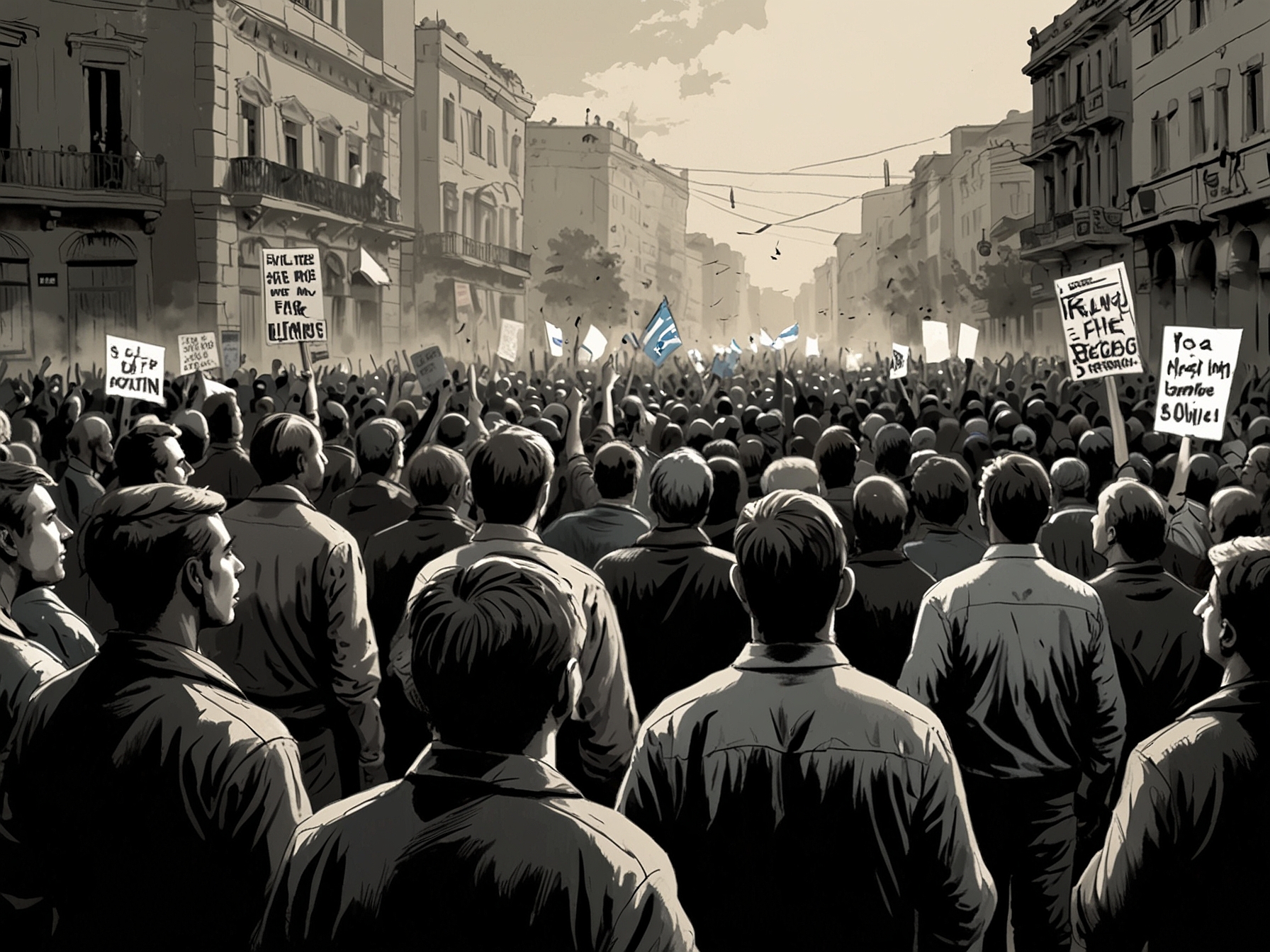
Maximiliano Ferraro brought another layer to the discussion. He warned about the ‘semi-loyals’—those who downplay threats under the guise of moderation. They proclaim support for democracy yet ignore escalating violence. “They swim at ease, yet close to the edge of the abyss,” he states.
Hernán Reyes from the Coalition Cívica doesn’t hold back. His critique of the so-called ‘Gordo Dan’ is sharp. He describes their actions as desperate. “It’s a dangerous game,” he implies. There’s a frustration that runs deep within these statements.
And the concern isn’t limited to just political maneuvers. Esteban Paulon, from the Socialist Party, challenges authorities. He questions the inaction concerning ‘Las Fuerzas del Cielo’. “Shouldn’t the Minister of Security investigate?” he asks, voicing what many feel. This indicates a growing unease about the state of law in Argentina.
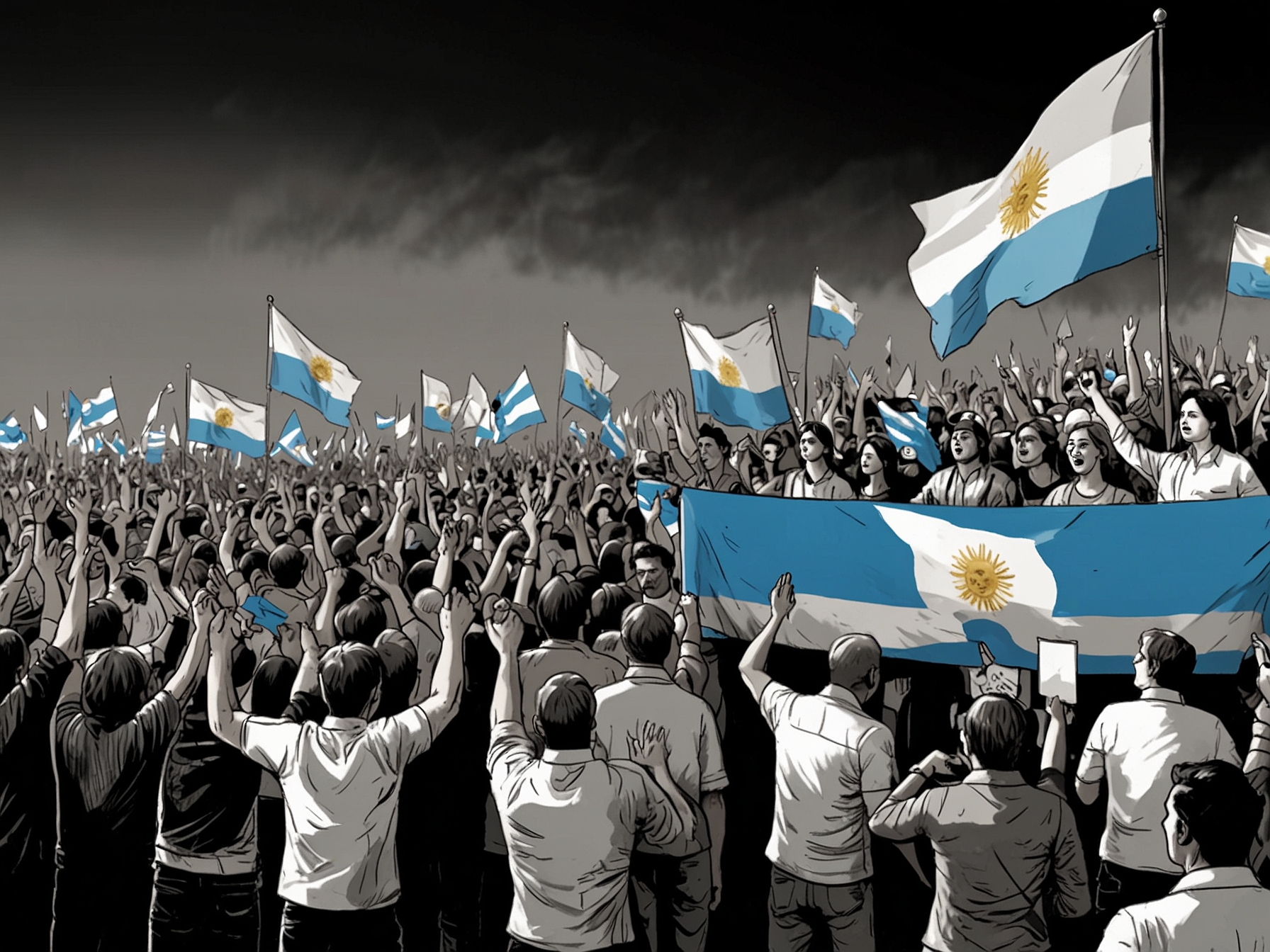
What about the response from the government? Where does their stance lie amid these rising tensions? Carla Carrizo’s remarks ring with urgency. She emphasizes the daily erosion of democratic norms. Words like “armed wings” evoke alarm bells in the political fabric.
This collective outrage extends beyond party lines. Even within various political factions, there’s an uniting thread. Silvana Guidicci reflects on lessons from the past. Comparisons to historical violence add weight. The memories of trauma mold current perceptions. It’s a reminder of the past that many refuse to ignore.
As the dust settles, Miryam Bregman weighs in. For her, the symbolism cannot be dismissed. “Fascist liturgy,” she claims, demands scrutiny. If the leadership remains silent on these acts, do they legitimize them? This question leaves many pondering their own convictions.
In the end, the situation reveals a fault line. The line between political discourse and violence narrows. What does this mean for ordinary citizens? For those concerned about democracy, it begs reflection. Are we witnessing a dangerous normalization of violence in politics?
The implications are immense. They reach into every corner of society. Voices of dissent are vital. Engaging with these realities may be the first step toward safeguarding democratic values.
As citizens, what must we do? How can we prevent history from repeating? The echoes of the past remind us to stay vigilant. History teaches us that silence can be complicity.
We must listen. We must educate. Only then can we ensure that first-class freedom remains intact. The path forward won’t be simple, but awareness is critical. The journey to safeguard democracy begins with us.

